
The free Deirdre Campaign was even talked about in the house of commons
| |
I have chosen to do a post structuralism analysis of the popular culture of soap operas.
'Hyper Reality' the term introduced by Jean Baudrillard plays a major role in the culture of soap operas. It is said that it is a term to describe how real life and fiction are becoming less important.
Soap Operas are a perfect example of this. You have people who play characters that that are fiction but who are based on real life and issues. The audience of theses programmes begin to sideline fiction and see the show as a reality. You have people writing to these actors and sympathizing with them over a storyline that they have played. Some fans have even asked them to marry them. It has become daily parts of peoples conversations that even the media cover them.
Take Coronation Street and the Free Deirdre Rachid campagin back in 1998 when she was wrongly jailed for fraud. The media ran a campaign ''Free the Weatherfield One'' with t-shirts and a petition avaialble to sign. It got that much coverage that even then Prime Minster Tony Blair promised to intervene.
''But this time, unlike many who have gone before her, this victim of judicial failure is a fictional character.'' (BBC)
The quote shows how Hyper Reality has torn reality from fiction and been able to distinguish between the two. It shows how the culture of Soap Opera's are becoming more and more real in some peoples minds.
In John Storey Cultural Theory and Popular Culture he sets out to try explain the term postmodernism.
Storey explains that the term 'post modern' started to circulate in the 1870's, It was not until the 50's and 60's that saw the beginning of what we as a cultured world understand the term to be. It can be argued that postmodernism shows that the distiction of th high and low cultures are failing to exist in the modern society. He relates it all back to the term of popular culture.
During the reading Storey introduces us to three main thinkers of the term 'post modern'.
The first been Jean François Lyotard,
''Knowledge is no longer seen as an end in itself, but as a means to an end''
From the quote I think that Llyotard is trying to admit that because of post modernism that we are living in anything goes culture, leading to a new way of modernism.

Free Deride Campaign received national coverage
Secondly were introduced to Jean Baudrillard who believes that there is little distinction between original and the copy. For example mass produced pop music has the same beat and rhythm but with different lyrics. Therefore been hard to distinguish been the original and the copy.
Baudrillard also introduced the word ''Hyper Realism''. This term means that the significance of fiction and reality is becoming less and less important in our culture. For example Soap Opera characters receive letters from fans with many starting campaigns when they don't agree with a story line.
Finally we were introduced to Fredric Jameson,
''Postmodern culture is a culture of quotations that is cultural production born out of previous cultural productions''
From the quote Jameson is referring to the idea that we reuse ideas and texts from previous cultures thus making culture relate to capitalism.
A Frankfurt School critique of boy bands

Man Bands - Westlife, Boyzone, Take That

Boy Bands - One Direction, Lawson, JLS
The Frankfurt School is best known for their theories which when I read the work of Adorno made me think of the music industry in a way that I never thought of before.
I have always known the music industry appeals to the mass cultures of the population with genres appealing to both high and low cultures. Taking my love for boy bands of the latest generations I am aware of the hidden agenda. This agenda been money and the breaking of teenage girls hearts.
Adorno said that you didn't need a brain for pop music as it was just mass produced. Yes he is right especially when it comes to boy bands. They are all one in the same and the theory of the boy band has become standardized.
We'll start the man bands that are like the fathers of pops. If i played you a song by all three bands (check out below) you could mistake all three to be the same. Same beats melodies and topic of love to appeal to all the girls swooning at their feet. To make us think that they are singing and writing these songs just for us. You can call it mass produced rubbish because that is exactly what it is but teenage girls fall for the melodies and bam you have the power of the boy band.
Even when you take the new era of boy bands like JLS, 1D and Lawson they are still releasing the same mass produced stuff that the industry spits out because as a business they know what sells. Why break something when it ain't broken.
To win the battle of the boy bands they have to fight to seem like they are individual to the rest of them on the pop circuit. Take new boy band on the block Lawson using their guitars to try show they are not a standardized boy bans. JLS have thier colours of red, blue, yellow and green, Westlife had thier suits and stools to keep them up away from the rest of the competition.
You can see that Boy Bands are a standardized product of the music industry. Pop Boy Bands are just mass producing the same beats, rhythms, looks and attitudes across the genre but hey it works so why change it?
Instead of my usual response in words i decided ti make a mind map using Microsoft word for something a bit different
John Storey discusses how meanings of words and their interpretations result in a cultural agreement. He explains how the system works by making a difference and a distinction within a system of difference and relationships. (See above diagram for explanation)
Storey goes on to tell us how words can change meaning. For instance if you take the sentence '' Mary made some cakes while thinking of her lover '' and change it to '' Mary made some cakes while thinking of her holiday ''. The sentence has a total different meaning now due to the change of a few words.
Storey is describing the importance of structure is processed through selection and combinations. He does through various thoughts of media theorists throughout the chapter. Iit suggests that ''structure makes meaning possible''.
A point to note is that the language we speak does not reflect the material world that we live in. It suggest that language constructs our sense of reality in the material world were posseions are more important than anything else.
During the chapter we are provided with images that accompany text. It suggest that even the phrase a picture says a 1000 words is uncommon as many pictures are accompanied by some form of text which allows the
Everybody is aware of the hit Disney trilogy High School Musical (HSM) which dominated TV screens, CD sales, merchandises and eventually cinema screens over the three year franchise. Critics called it the modern Romeo and Juliet with a twist to tell the youth generation not to stick to the status quo.
This text resembles Leavis approach on popular culture. Leavis always stated that film plays on ''cheap responses''. HSM does just that. The film is loaded with experiences that relate to its target audience with school years and the problem they face through peer pressure, self esteem cliques etc tat are explored throughout the three films.
These are emotions that the ordinary teen of today's society go through. They react to these responses that are cheap as they know that the young generation will lap it up and make Disney money by buying into the franchise.It can be argued that people learn to adapt the social norms of high school and accept what will be. There is also another argument that HSM does not portray real life.
When you think about it it is a little far fetched. Who would meet a guy on a holiday end up singing karaoke with him and then be transferred to a new school to become childhood sweethearts. That stuff only ever happens in Disney and Leavis theory of film by ''not learning, just watching'' could not be further from the truth for this particular Disney franchise.
''10 Things I Hate About You'' the romantic teen comedy from 1999 staring Julia Styles and the late Heath Ledger. A massive hit amongst the teen generation and of course critics alike. I first cam across this film in school aged about 16. We were learning about William Shakespeare which is very daunting at the age of 16. Then in cam the TV and bam out plays this film that had me laughing.
Little did I relaize that it was a modern adaption of the classic ''Taming of the Shrew'' by Shakespeare. Matthew Arnold (1869) describes some media texts as sweetness and light or as he likes to add ''the best of what's thought and said''.
I think that 10 Things I Hate About You is sweetness and light for our generation. Everybody knows the film and understands the film. It can be seen as the best because it is modern day tale of a classic. Therefor adapting the best high culture for the populist audience to allow more people to understand the work that William Shakespeare wrote. It gives people a new sense of culture identity and allowing the sweetness and light to spread across the popular culture.
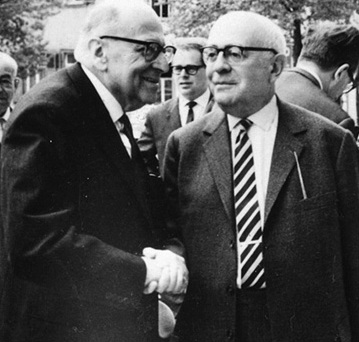
©Google Images 2013
This is a response to The Culture Industry: Enlightenment as Mass Deception by Theodor Adorro and Max Horkheimer (1944)
This reading was quite hard to understand at times due to it be written in 1944 which was well before my time. However despite the reading difficulty I feel I grasped enough of the points that they were saying in order to write a response to the reading.
Adorro and Horkheimer talk about how cultural chaos has now lead to a stamp been put on everything in modern life therefore resulting in society becoming standardized and all one in the same. I do believe in what they are saying because in today's society we are all becoming one. We all shop in the same shops listen to the same music and watch the same TV shows. Its the media relaying all the same facts and information to entertain us but in a different way to make us all seem individual.
For example lets take two music tracks
R Kelly's Ignition and Akon's Don't Matter both have the same rhythm to the song just different lyrics. So when did we become obsessed withe repetitiveness instead of questioning it?
''Society suffers a fall by the capitalist industry with other motives other than doing what they are meant to''
I agree with this quote as media industries are now more concerned over the money that comes from products than generating material for the consumers. When we look at the media as a whole everything is repeating concepts and aspects hence us walking and living in a standardization. Take an example of TV and how they are constantly reusing the same format and concepts.
Taking the pop stars concept it was just reused to incorporate two bands going head to head instead of one. Same concept same TV Channel same idea = repetitive.
A final thought from the reading is that Adorro and Horkhemer believe that the media create the illusion of individuality. ''Individuation has never really been achieved'' This quote shows how we are all the same. When you think about today's society we all eat the same things, watch the same things and everything is generated by the mass culture leading us to become one society with just one way of life.
To sum it is safe to say that this reading reflects the society that we live in today considering it was written in 1944. It is now evident that we live in a society that repeats its concepts and we are just willing to adapt to this mass culture instead of asking why?
Irelands best known unsigned band Frantic Jack have just played to a 10,000 strong crowd in India. Headlining the Alcheringa Festival in Guwahati, India it is the band’s first major gig outside of the Emerald Isle.
The Alcheringa Festival (meaning Dream Time) is a cultural festival in India. More than 40,000 people attend each year to witness the grand celebration of youth, culture and arts. The difference this year has been that a rock band headlined the festival with none other than our very own Frantic Jack. Afsanoor Islam volunteer at the festival shared his delight ‘’Finally a Rock band headlining the fest’’.
Lead singer Daragh Fitzgerald described it as ‘’one of the most amazing experiences of my life. 10,000 strong singing Frantic Jack songs in India is a pretty surreal moment’’. He went on to explain that Cultural Ireland also made it possible for them to perform at the gig. Cultural Ireland are a company that promote Irish arts across the globe for those of you who didn’t know.
One attendee Aashish Kumar described Frantic Jack’s performance as an ‘’absolutely mesmerizing performance’’ and he also thanked the band for coming to India and that he hopes they will return one day.
Band manager and member of Frantic Jack, James Kearney couldn’t hide his excitement as he spoke to us ‘’What a weekend, first time to play India, first time to use fireworks at a gig and to top it off there was 10'000 people bouncing in front of the stage, unreal moment’’. Drummer Ricky Byrne added that it was ‘’ without doubt the best feeling I’ve ever had on stage Over 10,000 Indian fans singing our songs back to us it’s a small world’’.
In the mist of all their excitement they have exclusively revealed that before they flew to India they had just wrapped up the video for brand new release Living Proof. The date is yet to be confirmed but they assured us it won’t be too long. It will be the second single release from their second album Last One to Leave.
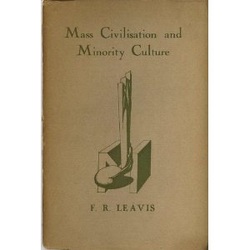
© Google Images 2013
Mass Civilization and Minority Culture by F.R Leavis.
In this reading Leavis, tries to define what exactly culture is. No culture is the word that even today's society struggle to define. He used an interesting description to define the word 'culture'...
''a kind of paper currency based upon a very small proportion of gold''
Leavis then attempts to explain this through the eyes of Shakespeare. I feel that he is portraying that everybody is aware and knowledgeable of Shakespeare's works but yet only a minority can appreciate them. Even in today's society only a specialized 'culture' of people would dare attempt to read the works of Shakespeare. I would agree with Leavis as even I wouldn't be able to apperciate the works of one of the popular culture writers but yet I know exactly who he is.
When this work was written by Leavis it was the time that mass media was on the rise and Leavis seen this as a ''culture crisis''. He feared that the rise of ''Americanization'' would lead to Britain would lack British culture that separates them fromt he rest of the world. Leavis worrie that the world would become one culture with no difference and we would all be considered as one.
I would disagree with Leavis on his opinion of the whole level of Americanization. Yes i do agree that we are more then ever like one big country as we all can speak one language been English making it easy to communicate with one another. However I feel that each and every country in the world will always have their 'culture'. Take Ireland for example, when they were ruled by Britain we fought to keep ore culture and identity. We won and to this day our culture has not been comprised with Irish sport (hurling, GAA) more played in the country than of or foreign sports like football. Every country has there own identity and culture that will always be evident even if we might adapt some areas of other cultures.
''the standardization in the form represented by the Press, it becomes obviously of sinister significance that they should be accompanied by a process of leveling-down”
One final thought on the reading is that Leavis describes the press as a system of mass production that should be leveled down.I feel that Leavis was saying that as a mass production it needs to represent a mass culture and that it don't include the ''high brow'' people he refers to in the text. I feel that he may have been right on this account. When you look at the newspapers and thier cultures there is one that fits perfectly into each culture that exists in today's society.




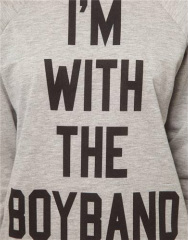
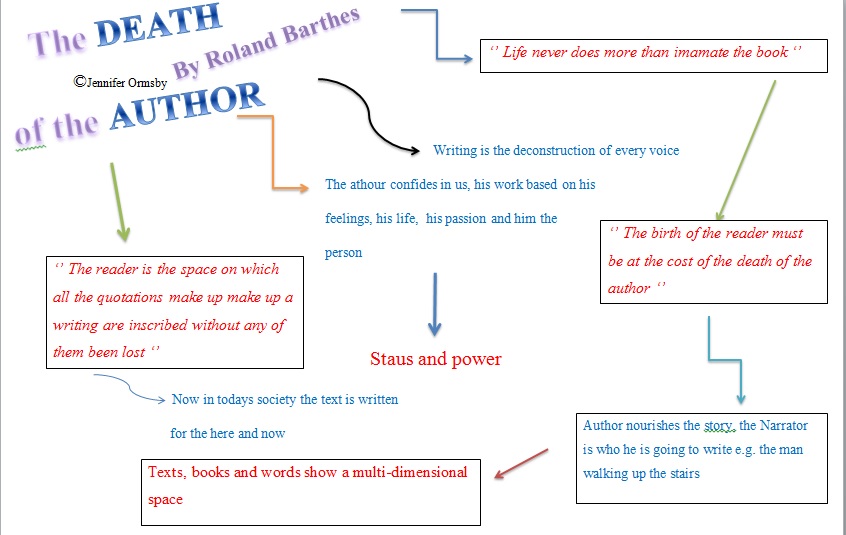
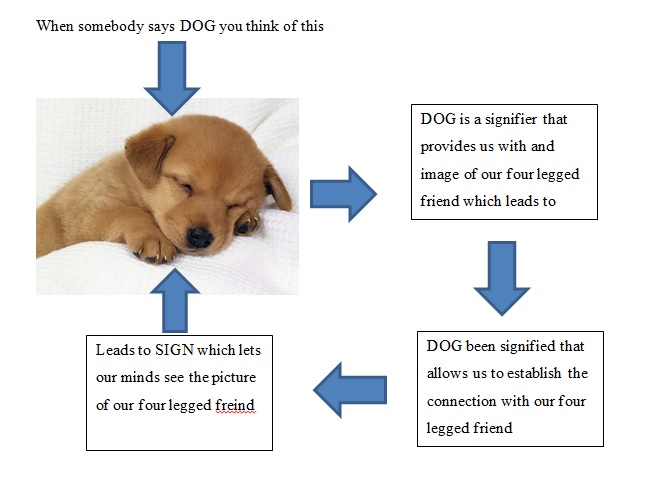
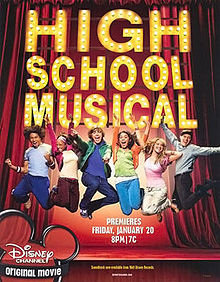
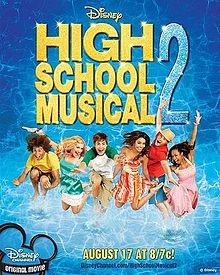

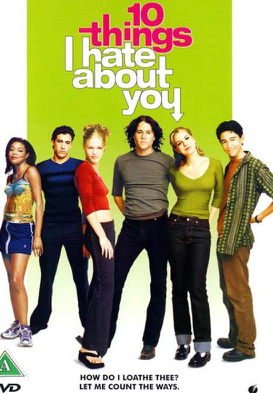
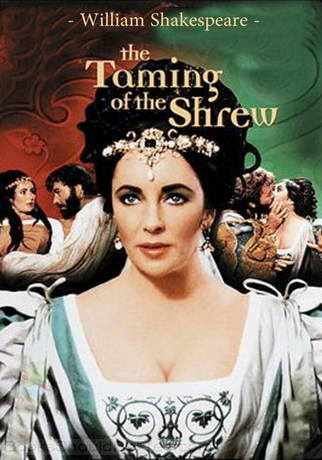

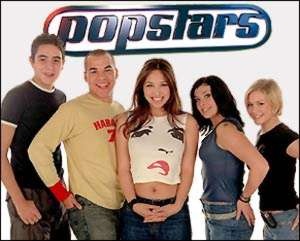
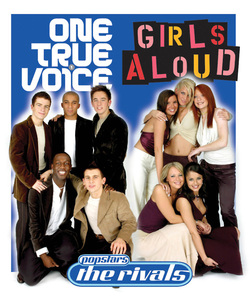


 RSS Feed
RSS Feed